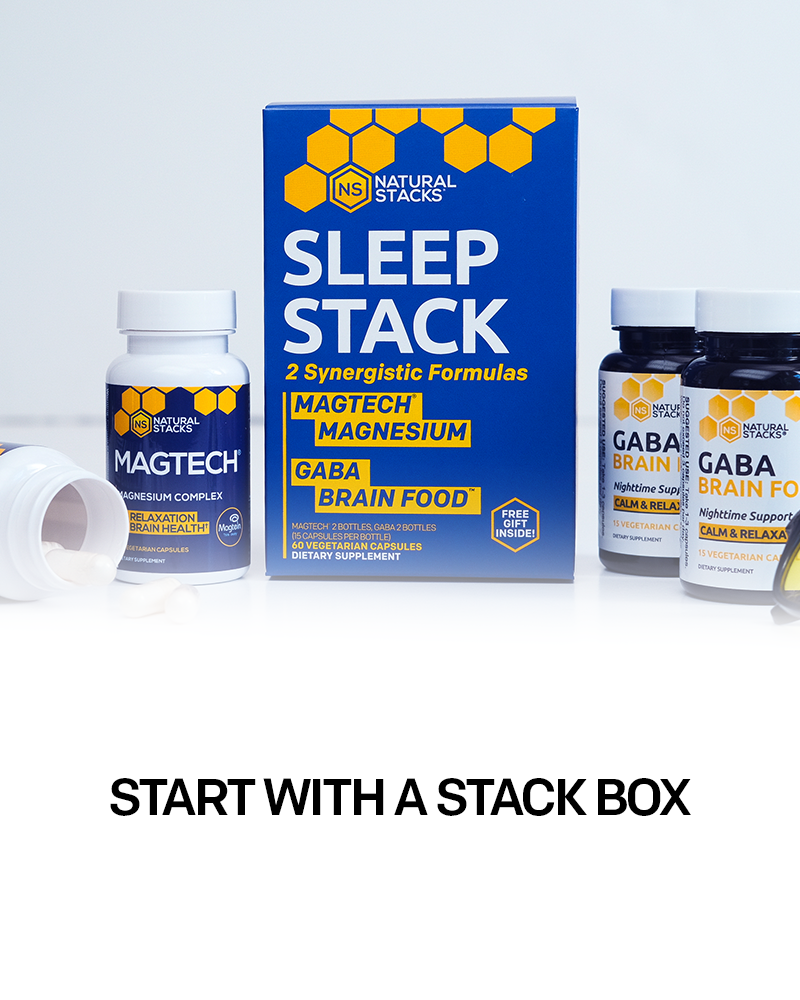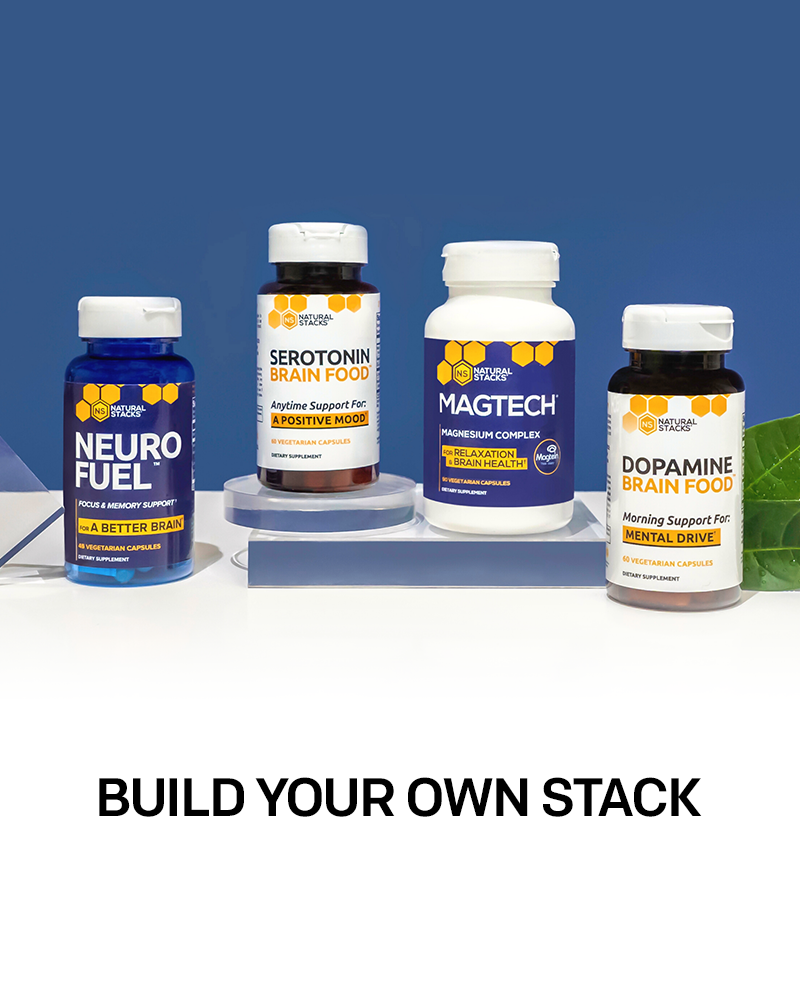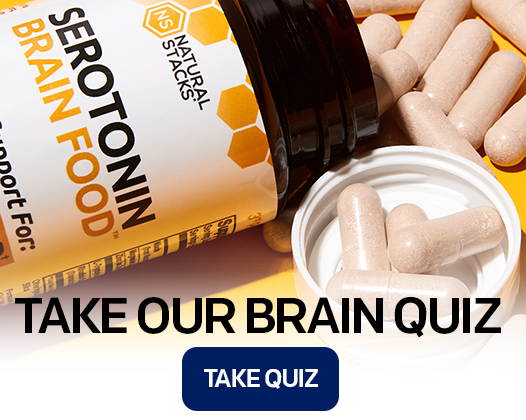Rhodiola Rosea

Main Points
- Rhodiola Rosea is an adaptogenic herb that has been used for centuries to reduce the physical and chemical effects of stress, reduce anxiety, improve mood, and alleviate fatigue in stressful situations.
- Rhodiola may have neuroprotective benefits that involve preserving and improving cognition.
- The active compounds in rhodiola are salidroside and a class of bioactive molecules called rosavins.
Name
- Rhodiola Rosea (also known as: Rosavin, Rosenroot, Golden Root, Rhidola, Arctic Root, Rhodiola Rhizome).
Origin
- Rhodiola is a Traditional Chinese Medicine and Scandinavian adaptogenic herb native to northernmost parts of Europe and Central Asia.
How to Take
- Up to 660 mg, as higher doses may be ineffective.
Natural Stacks Supplements Containing Rhodiola Rosea
Effects On The Brain
Rhodiola Rosea has been shown to have beneficial effects on alleviating cognitive stress and fatigue.
Additionally, it may possess some neuroprotective properties against toxins.
Effects On Stress
A dose of 400 mg daily (200 mg twice daily) for 4 weeks showed improvements in perceived stress, fatigue, and stress-induced social and work dysfunction [1].
Additionally, the results of a recent meta-analysis showed that up to 660 mg of rhodiola rosea extract per day reduced cognitive fatigue and improved overall well-being relative to placebo treatment [2].

Figure 1. Improvements in life-stress symptoms after 4 weeks of rhodiola supplementation
Effects On Fatigue
Rhodiola appears to be effective at reducing fatigue when taken acutely or with daily supplementation, and may be effective at attenuating fatigue in chronically fatigued people [3].
Effects On Memory and Cognition
In rodent studies, doses of rhodiola at 50 - 100 mg/kg body weight for 9 days was able to enhance memory in otherwise normal, healthy rats [4].
Several studies have demonstrated rhodiola’s ability to reduce cognitive fatigue, reduce processing errors during mentally challenging tasks, and increase attention and reaction time [5, 6, 7, 8, 9].

Figure 2. Improvements in anti-fatigue index compared to placebo
Rhodiola has been shown to preserve cognition and there is some evidence suggesting it may improve memory independent of stress and fatigue [10].
Rhodiola has also been shown to accelerate the rate of nerve healing [11, 12].
Effects On Mood
Doses of 340 mg or 680 mg of rhodiola per day have been shown to improve mood, sense of well being, and emotional stability [13].
Effects On Anxiety
Preliminary evidence suggests rhodiola may be effective at reducing anxiety. In humans, improvements in generalized anxiety disorder have been observed with supplementation at 340 mg over 10 weeks [14].
Effects On Longevity
As an adaptogen, rhodiola appears to promote longevity by acting on hormetic pathway DAF-16 to elicit an adaptive stress response [15, 16, 17].
Effects On Glucose Metabolism
Rhodiola may have application in improving glucose tolerance. One study showed that a dose of rhodiola administered to rats was able to reduce blood glucose by ~50%, comparable to the effects of an equal dose of cinnamon, another known compound to improve postprandial glucose metabolism [18].
Side Effects
No reported side effects within the recommended range.
References
- Edwards, D., Heufelder, A., & Zimmermann, A. (2012). Therapeutic Effects and Safety of Rhodiola rosea Extract WS® 1375 in Subjects with Life‐stress Symptoms–Results of an Open‐label Study. Phytotherapy Research, 26(8), 1220-1225.
- Hung, S. K., Perry, R., & Ernst, E. (2011). The effectiveness and efficacy of Rhodiola rosea L.: a systematic review of randomized clinical trials. Phytomedicine, 18(4), 235-244.
- Olsson, E. M., von Schéele, B., & Panossian, A. G. (2009). A randomised, double-blind, placebo-controlled, parallel-group study of the standardised extract shr-5 of the roots of Rhodiola rosea in the treatment of subjects with stress-related fatigue. Planta medica, 75(02), 105-112.
- Getova, D. P., & Mihaylova, A. S. (2013). Effects of Rhodiola rosea extract on passive avoidance tests in rats. Central European Journal of Medicine, 8(2), 176-181.
- Darbinyan, V., Kteyan, A., Panossian, A., Gabrielian, E., Wikman, G., & Wagner, H. (2000). Rhodiola rosea in stress induced fatigue—a double blind cross-over study of a standardized extract SHR-5 with a repeated low-dose regimen on the mental performance of healthy physicians during night duty. Phytomedicine, 7(5), 365-371.
- Spasov, A. A., Wikman, G. K., Mandrikov, V. B., Mironova, I. A., & Neumoin, V. V. (2000). A double-blind, placebo-controlled pilot study of the stimulating and adaptogenic effect of Rhodiola rosea SHR-5 extract on the fatigue of students caused by stress during an examination period with a repeated low-dose regimen. Phytomedicine, 7(2), 85-89.
- Spasov, A. A., Mandrikov, V. B., & Mironova, I. A. (1999). The effect of the preparation rodakson on the psychophysiological and physical adaptation of students to an academic load. Eksperimental'naia i klinicheskaia farmakologiia, 63(1), 76-78.
- De Bock, K., Eijnde, B. O., Ramaekers, M., & Hespel, P. (2004). Acute Rhodiola rosea intake can improve endurance exercise performance. International journal of sport nutrition and exercise metabolism, 14(3), 298-307.
- Shevtsov, V. A., Zholus, B. I., Shervarly, V. I., Vol'skij, V. B., Korovin, Y. P., Khristich, M. P., ... & Wikman, G. (2003). A randomized trial of two different doses of a SHR-5 Rhodiola rosea extract versus placebo and control of capacity for mental work. Phytomedicine, 10(2), 95-105.
- Aslanyan, G., Amroyan, E., Gabrielyan, E., Nylander, M., Wikman, G., & Panossian, A. (2010). Double-blind, placebo-controlled, randomised study of single dose effects of ADAPT-232 on cognitive functions. Phytomedicine, 17(7), 494-499.
- Sheng, Q. S., Wang, Z. J., Zhang, J., & Zhang, Y. G. (2013). Salidroside promotes peripheral nerve regeneration following crush injury to the sciatic nerve in rats. Neuroreport, 24(5), 217-223.
- Qu, Z. Q., Zhou, Y., Zeng, Y. S., Lin, Y. K., Li, Y., Zhong, Z. Q., & Chan, W. Y. (2012). Protective effects of a Rhodiola crenulata extract and salidroside on hippocampal neurogenesis against streptozotocin-induced neural injury in the rat. PloS one, 7(1), e29641.
- Darbinyan, V., Aslanyan, G., Amroyan, E., Gabrielyan, E., Malmström, C., & Panossian, A. (2007). Clinical trial of Rhodiola rosea L. extract SHR-5 in the treatment of mild to moderate depression. Nordic journal of psychiatry, 61(5), 343-348.
- Bystritsky, A., Kerwin, L., & Feusner, J. D. (2008). A pilot study of Rhodiola rosea (Rhodax®) for generalized anxiety disorder (GAD). The Journal of Alternative and Complementary Medicine, 14(2), 175-180.
- McElwee, J. J., Schuster, E., Blanc, E., Piper, M. D., Thomas, J. H., Patel, D. S., ... & Gems, D. (2007). Evolutionary conservation of regulated longevity assurance mechanisms. Genome biology, 8(7), R132.
- Partridge, L., & Gems, D. (2002). Mechanisms of aging: public or private?. Nature Reviews Genetics, 3(3), 165-175.
- Panossian, A., & Wikman, G. (2009). Evidence-based efficacy of adaptogens in fatigue, and molecular mechanisms related to their stress-protective activity. Current clinical pharmacology, 4(3), 198-219.
- Kim, S. H., Hyun, S. H., & Choung, S. Y. (2006). Antioxidative effects of Cinnamomi cassiae and Rhodiola rosea extracts in liver of diabetic mice. Biofactors, 26(3), 209-219.










